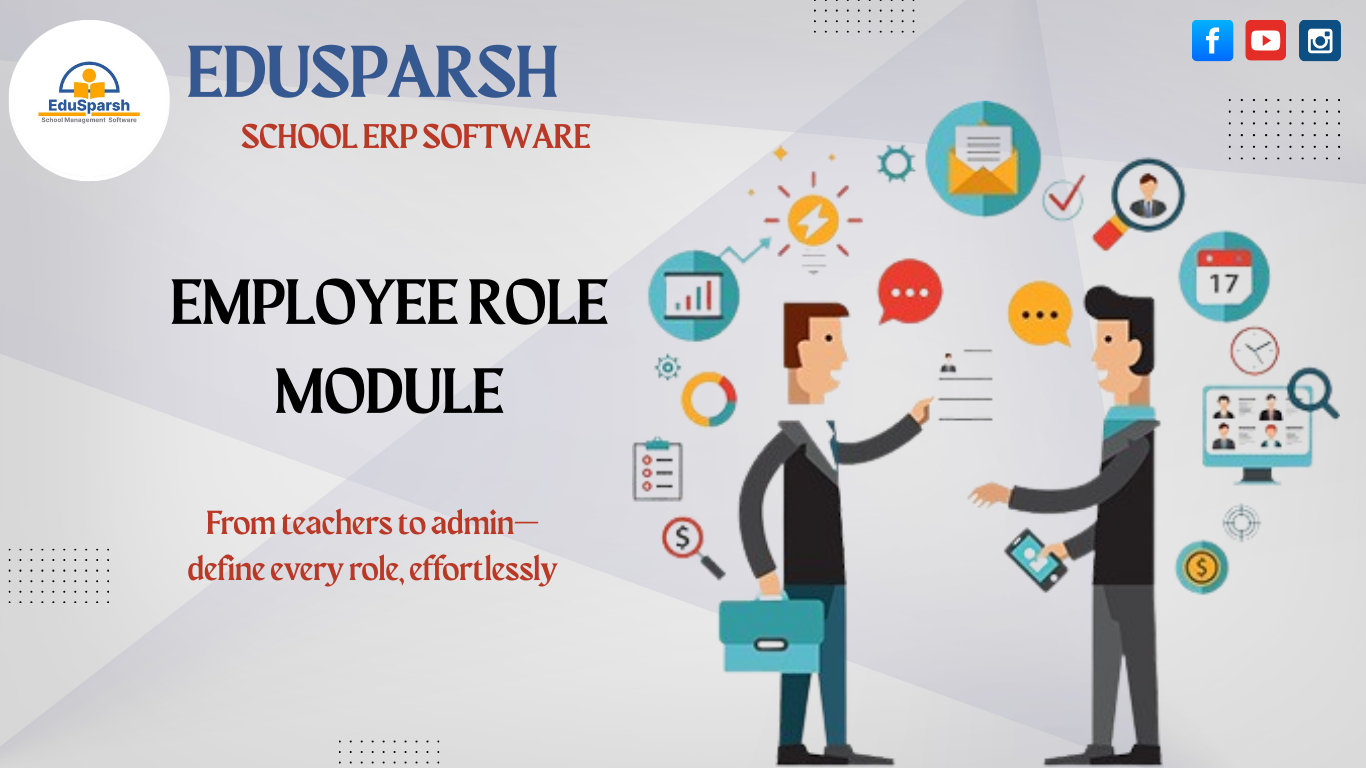


Employee Role Module
What is an Employee Role Module?
The Employee Role Module in school ERP software is a feature that allows administrators to define, assign, and manage various roles for employees within the system.
It specifies what access, permissions, and responsibilities each staff member has, ensuring that they can only access the data and perform the tasks relevant to their position.
This module is designed to streamline the management of roles, improve security, and maintain data privacy.

Why Do We Need Employee Role Module in School Software?
The Employee Role module in school software is important for clearly defining and managing the responsibilities and access levels of different staff members within the school system.
It allows administrators to assign specific roles—such as teacher, administrator, librarian, or counselor—each with tailored permissions and access to relevant features.
This ensures that employees can efficiently perform their duties without unnecessary access to sensitive information, enhancing data security and operational clarity.
By organizing employee roles, the school can improve workflow management, accountability, and collaboration among staff, leading to a more structured and efficient work environment.
Enhanced Data Security
Assigning specific roles ensures sensitive data like student records and financials is only accessed by authorized personnel.
Streamlined Role Management
Simplifies assigning, managing, and updating employee roles based on responsibilities for better organization.
Improved Efficiency
Clear roles allow staff to focus on specific tasks, boosting productivity and operational flow.
Customization and Flexibility
Administrators can tailor roles for various staff types, adapting to any organizational structure.
Clear Accountability
Defined roles help track individual responsibilities, monitor performance, and promote accountability.
Access Control
Fine-tuned data and feature access ensures employees only view what is relevant to their role.
Simplified System Management
Centralized permission settings reduce workload for admins and ensure consistency across the system.
Scalability
The system supports growth by easily integrating new roles and structures without disruption.
Improved Collaboration
Defined responsibilities streamline communication and coordination across departments.